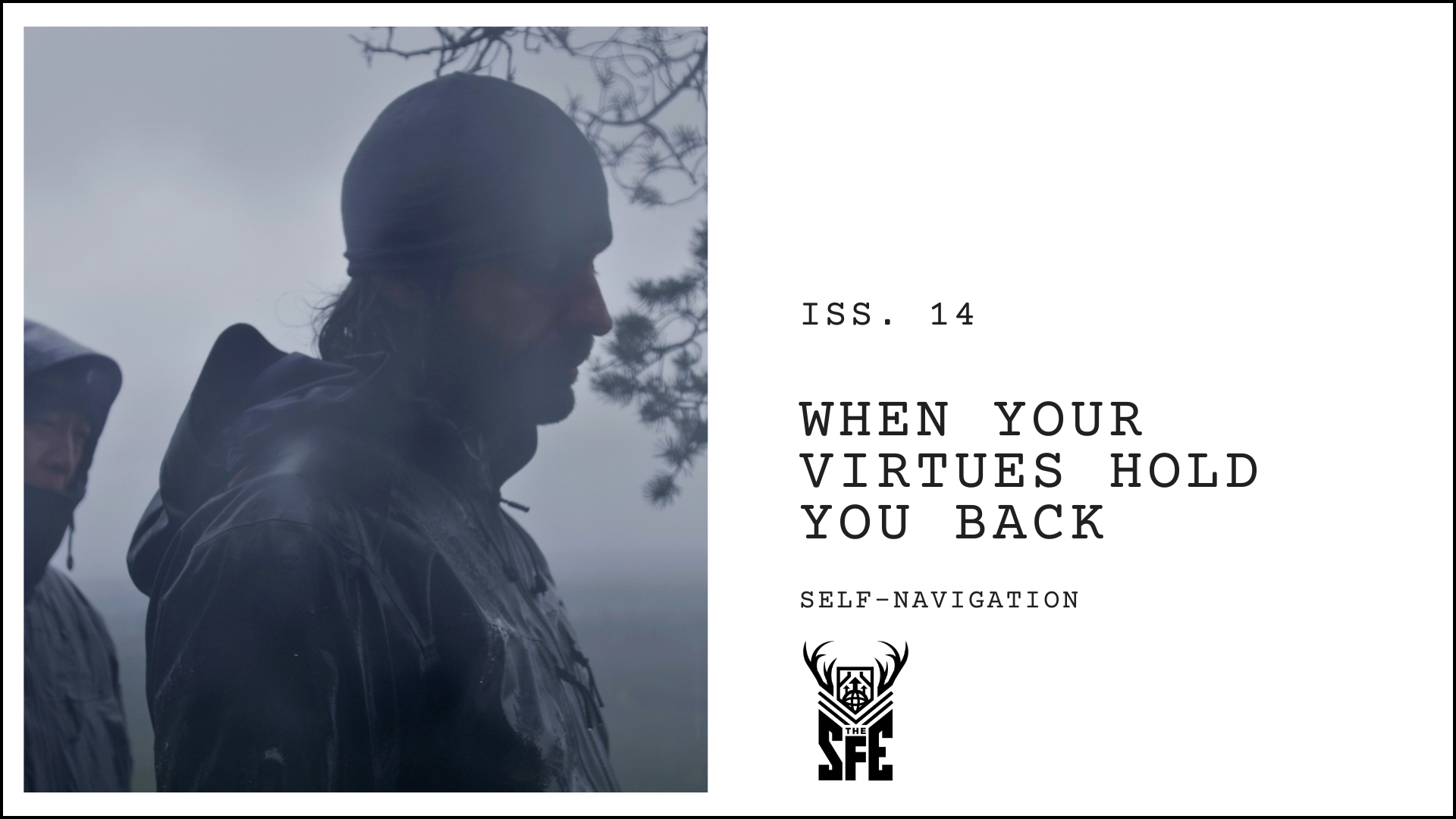
We all have aspects of ourselves that we proudly define as virtues. These are the traits that we believe are central to our identity and essential to our success.
But what if some of these “virtues” are actually rooted in fears that, over time, hold us back from living life well lived.
Now, if you’re thinking right now. No this isn’t me. All of my virtues are pure. I hate to break it to you, but you’re that guy. And this is a good exercise in self-awareness.
Just imagine someone who prides themselves on their independence. On the surface, this might seem like a positive quality. Independence suggests strength, self-reliance, and the ability to stand alone.
But chances are, that independence was born out of a fear of weakness, a reluctance to trust others, or past experiences that made relying on others seem dangerous.
What began as a protective mechanism—a fear—has been rebranded as a virtue.
Now that’s not a problem in itself.
I’d argue that virtues and values always stem from adapting to the challenges and traumas of life. This is everyone’s story.
It only becomes a problem when these once-useful adaptations become rigid, preventing us from experiencing the full spectrum of life and relationships.
For instance, resilience is a virtue for many of us. Yet, for some, resilience might have its roots in a deep-seated fear of appearing weak, being hurt, or being wrong.
It’s a shield that’s been carried for so long that the person doesn’t realize it’s keeping them from making new friends, being a gentle partner, or even self-compassion.
The resilience that helps us endure can make us hard and unyielding.
The independence that keeps us safe can isolate us.
The ambition that drives us forward can blind us to enjoying the present.
These “virtues” can become prisons of our own making, trapping us in behaviors and patterns that might do more harm than good.
Recognizing this duality is key to understanding ourselves. It’s about seeing the full picture—not just the polished surface of our virtues, but the “flawed” foundations on which they rest.
In my own journey, I’ve seen how certain traits I once valued highly were actually rooted in deeper insecurities. For years, I took pride in being self-sufficient, in not needing anyone else.
But when I finally examined where that self-sufficiency came from, I realized it was driven by a fear of being let down or hurt by others. What I had long seen as a strength was actually a barrier that kept me from forming deeper, more meaningful connections.
This realization wasn’t easy. It meant confronting parts of myself that I had buried deep down, that were raw, exposed and unresolved.
But in doing so, I began to see how I could transform these flaws back into virtues—not by hiding them, but by integrating them into a more authentic, realized self.
Another way to look at this though the Hero’s Journey model.

In Joseph Campbell’s Hero’s Journey, the Refusal of the Call is usually seen as the hero’s initial hesitation or outright refusal to embark on their adventure. But if we look deeper, this refusal actually represents a profound resistance to confronting the very aspects of himself that he’s created his identity around. These are those fears-turned-adaptive-mechanisms that have been reinterpreted as virtues.
The true challenge the hero faces is not just the external adventure but the internal struggle to let go of the identity they’ve built around these fears.
- The Call to Adventure becomes a call to dissolve these fixed aspects of the self, to break free from the comfortable but limiting narrative that has defined them.
- Answering the Call means embracing the discomfort of change, acknowledging that the traits we once saw as strengths might be the very things holding us back.
- Refusal of the Call then is a natural response to the fear of losing this identity, of stepping into the unknown without the familiar crutches of our so-called virtues.
It is only when the hero accepts this challenge—when they are willing to confront and let go of this fixed identity—that transformation can occur.
The road to redemption is a courageous one. Just look at the rest of the hero’s journey. We could interpret all of that journey as being a series of tests that life throws your way to see if you’re seriously serious about becoming the person you want to become.
So be easy on yourself. This is some of the most courageous work a human can do.
Understanding that our virtues might actually be rooted in fears isn’t about diminishing ourselves or our achievements. It’s about gaining a deeper awareness of who we are and how we’ve become this way.
It’s about recognizing the strengths and the vulnerabilities, the light and the dark—and embracing it all as part of our walk through life.
As you move through this week, I invite you to reflect on the virtues you hold dear. What lies beneath them? How might they be both helping and hindering you? You can even ask someone else for feedback if you’re feeling brave. And most importantly, how can you begin to embrace the full spectrum of your identity, flaws and all?
